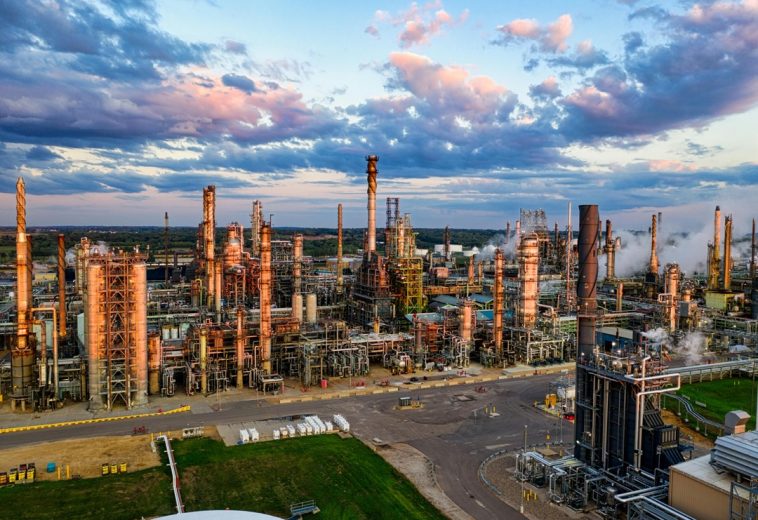The Niger Delta, one of Africa’s most resource-rich regions, accounts for approximately 75% of Nigeria’s foreign exchange earnings and nearly 40% of the country’s GDP. Yet, it remains a paradox of wealth and environmental devastation. Chronic oil spills—averaging 240,000 barrels annually—gas flaring, deforestation, and loss of aquatic biodiversity have crippled local livelihoods. The region mirrors the environmental challenges faced by other resource-rich African nations such as Angola, Equatorial Guinea, and Gabon. However, the concept of ecological modernisation offers a transformative pathway for Africa’s oil-producing economies to balance industrial growth with sustainability.
Ecological modernisation integrates environmental sustainability into industrial strategies, emphasising technological advancements, regulatory frameworks, and community engagement. In the African oil industry, this paradigm is essential for mitigating the environmental and social costs of resource extraction. The Niger Delta’s experience underscores the urgency of adopting cleaner technologies, enforcing environmental standards, and fostering inclusive stakeholder participation via the following:
- Technological Innovation
Africa’s oil sector must embrace cleaner extraction and processing technologies to curb environmental degradation. In Nigeria, the failure to implement advanced leak detection systems has led to over 12,000 recorded spills since 1976, according to the National Oil Spill Detection and Response Agency (NOSDRA). The adoption of enhanced oil recovery (EOR) techniques and digitised pipeline monitoring could drastically reduce spills and wastage. Moreover, gas flaring—responsible for emitting 330 billion cubic feet of methane in Nigeria alone—can be phased out through gas-to-power investments, a model successfully adopted in Algeria and Egypt.
- Strengthening Regulatory Frameworks
Nigeria’s regulatory framework, though improving, remains weak due to inconsistent enforcement. The 2021 Petroleum Industry Act (PIA) was a step forward in ensuring environmental accountability, but gaps persist. Countries like Ghana, which has leveraged the Petroleum Revenue Management Act (2011) to enforce environmental safeguards, provide a blueprint for Nigeria and others. Stronger enforcement of pollution penalties and mandatory environmental impact assessments (EIAs) can drive oil firms toward greener operations.
- Corporate Responsibility and Community Engagement
Africa’s oil multinationals, including Shell, Chevron, and TotalEnergies, have faced longstanding criticisms for environmental negligence. Corporate Social Responsibility (CSR) initiatives must go beyond token gestures and genuinely invest in local development. The Niger Delta Amnesty Programme, which sought to address oil-related conflicts, highlights the need for deeper community involvement. Similar to Angola’s Cabinda model, which reinvests oil revenues into social projects, Nigeria’s oil companies must adopt community-led sustainability programs to foster long-term trust and stability.
- Economic Diversification
A sustainable future for the Niger Delta—and Africa’s broader oil belt—requires economic diversification. Agriculture, aquaculture, and renewable energy can serve as alternative economic engines. Nigeria’s renewable energy sector, currently contributing less than 10% to national power generation, holds immense potential. The success of Kenya’s geothermal energy projects and South Africa’s solar initiatives offer models for the Niger Delta to explore solar farms and hydropower as viable alternatives.
Overcoming Key Challenges
Despite the promise of ecological modernisation, challenges remain. Weak governance, corruption, and the entrenched interests of oil conglomerates hinder progress. Additionally, financial constraints and a lack of skilled labour impede the transition to cleaner technologies. However, international partnerships—such as the United Nations Environment Programme’s (UNEP) involvement in the Ogoniland clean-up—demonstrate that multi-stakeholder collaboration can yield tangible environmental restoration efforts.
To harness the potential of ecological modernisation, African oil-producing nations must prioritise the following:
- Public-Private Partnerships (PPPs): Collaborative investments in clean energy and environmental restoration projects.
- Legislative Reforms: Enforcing stricter environmental regulations with clear punitive measures.
- Technological Investments: Deploying digital monitoring systems to curb oil spills and gas emissions.
- Community-Led Initiatives: Ensuring that local populations are integral to decision-making and benefit from resource wealth.
The Niger Delta’s struggle with ecological degradation is not unique—it mirrors the broader challenges of Africa’s resource-rich regions. However, ecological modernisation presents an opportunity to rewrite this narrative. By embracing technological innovation, enforcing robust environmental policies, and ensuring equitable community participation, Africa’s oil industry can transition from an extractive model to a sustainable, inclusive, and globally competitive sector. If pursued with genuine commitment, the Niger Delta could transform from an environmental cautionary tale into a benchmark for sustainable resource management across the continent.
Dr. Joshua Rufus Abadi is a renowned environmental engineer specializing in water contamination. He has provided consultancy on oil spills in Nigeria and has spearheaded the EU WasClean project. Additionally, he collaborates with the University of Southampton and the University of Brighton, and leads environmental initiatives for Inspired Grace Healthcare.



